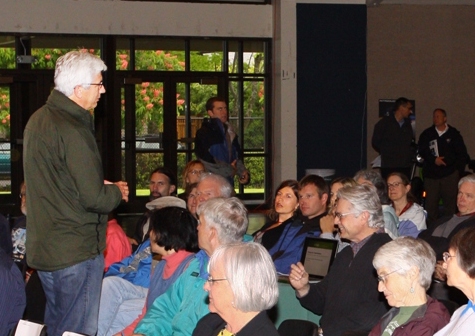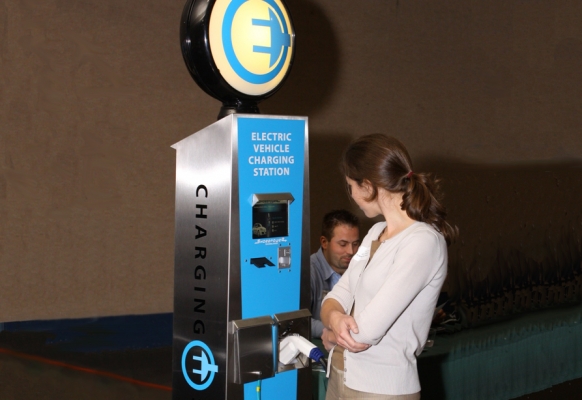With its major cities clustered along 100 miles of the Willamette Valley, Oregon offers a fertile ground for electric vehicles and their limited range, George Beard of Portland State University said at a recent presentation. But Oregon’s readiness for electric vehicles doesn’t itself put one electric car on the road.
Beard, with Portland State’s Research & Strategic Partnerships, opened the Center for Transportation Studies’ spring Transportation Seminar Series with the presentation “Electric Vehicles: Are we in the Driver’s Seat?” It’s not just the population centers that make Oregon ripe for electric vehicles, Beard said. Automakers and governments have also invested heavily to deploy the technology in the state.
Oregon spends roughly $6 billion per year on gasoline, with nearly all of that money leaving the state, Beard said. Switching to a locally produced energy source could keep more of that money in the state.
Of course, predicting the future is never that simple, Beard said. Drivers unhappy with congestion won’t see that problem disappear because their cars now run on electricity. “Traffic congestion is a real killer,” he said.
“There’s no silver bullet that will solve our mobility problems,” he said. ”You’ve got to have a number of approaches for being able to move people and goods.”
For a technology that doesn’t require foreign oil, the fate of electric vehicles is intertwined with the oil cartels, Beard said. The...
Read more

